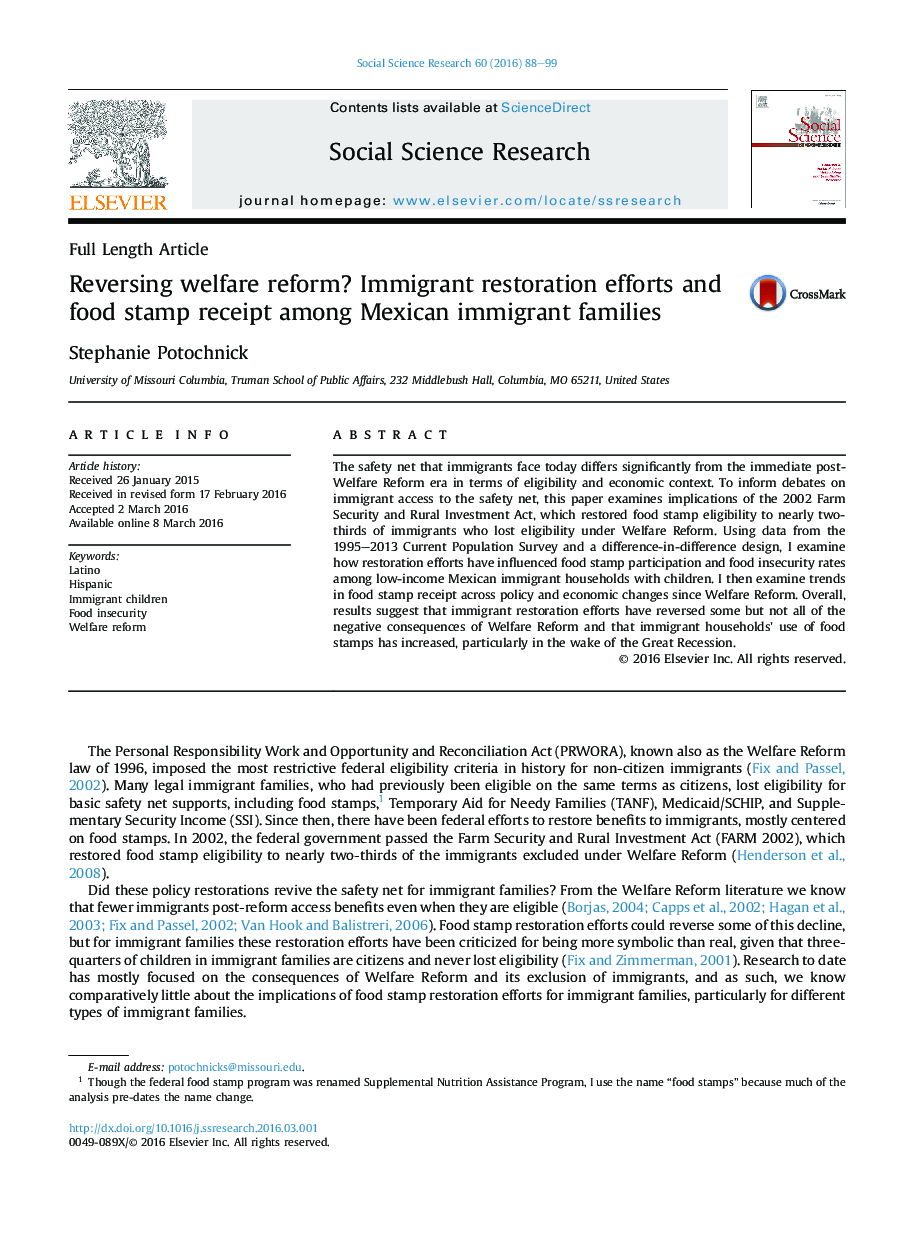| Article ID | Journal | Published Year | Pages | File Type |
|---|---|---|---|---|
| 5047085 | Social Science Research | 2016 | 12 Pages |
The safety net that immigrants face today differs significantly from the immediate post-Welfare Reform era in terms of eligibility and economic context. To inform debates on immigrant access to the safety net, this paper examines implications of the 2002 Farm Security and Rural Investment Act, which restored food stamp eligibility to nearly two-thirds of immigrants who lost eligibility under Welfare Reform. Using data from the 1995-2013 Current Population Survey and a difference-in-difference design, I examine how restoration efforts have influenced food stamp participation and food insecurity rates among low-income Mexican immigrant households with children. I then examine trends in food stamp receipt across policy and economic changes since Welfare Reform. Overall, results suggest that immigrant restoration efforts have reversed some but not all of the negative consequences of Welfare Reform and that immigrant households' use of food stamps has increased, particularly in the wake of the Great Recession.
